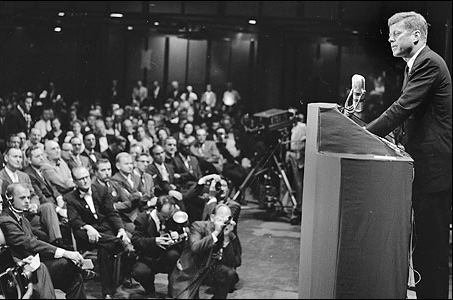


| During the Kennedy years, some groups that had formerly been discriminated against made great breakthroughs in realizing the American Dream. For others, the early 1960s proved to be another disappointing era. President Kennedy initiated the planning for a "War on Poverty" in 1963, after reading an article by noted social commentator Michael Harrington entitled, "The Other America." Harrington detailed the plight of the poor and Kennedy ordered his economic advisers to consider new measures to deal with the one-fifth of the nation that had incomes below the poverty line. After Kennedy's death, President Lyndon B. Johnson moved to pick up Kennedy's poverty program, but also to massively expand it and elevate it in the priorities of his administration's domestic agenda. In targeting poverty in America, Kennedy was motivated by more than a sense of "right" or responsibility (although those motivations arguably were important). In improving the lot of poor, southern whites—particularly in Appalachia and the rural South—Kennedy hoped to win support of southern members of Congress. By bringing these people into the mainstream, Kennedy also hoped to increase the Democratic electorate in the southern and border states and stave off a Republican challenge to the party allegiance of white voters. |
|---|

|

|

|
 |
|---|